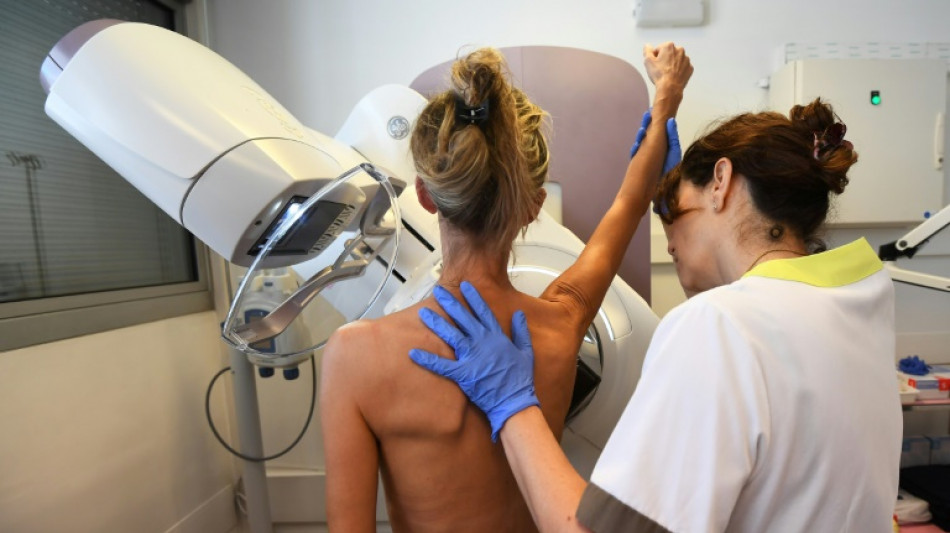
-
 Australia all out for 152 as England take charge of 4th Ashes Test
Australia all out for 152 as England take charge of 4th Ashes Test
-
Boys recount 'torment' at hands of armed rebels in DR Congo

-
 Inside Chernobyl, Ukraine scrambles to repair radiation shield
Inside Chernobyl, Ukraine scrambles to repair radiation shield
-
Bondi victims honoured as Sydney-Hobart race sets sail

-
 North Korea's Kim orders factories to make more missiles in 2026
North Korea's Kim orders factories to make more missiles in 2026
-
Palladino's Atalanta on the up as Serie A leaders Inter visit

-
 Hooked on the claw: how crane games conquered Japan's arcades
Hooked on the claw: how crane games conquered Japan's arcades
-
Shanghai's elderly waltz back to the past at lunchtime dance halls

-
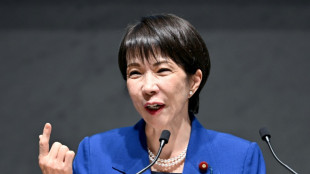 Japan govt approves record 122 trillion yen budget
Japan govt approves record 122 trillion yen budget
-
US launches Christmas Day strikes on IS targets in Nigeria

-
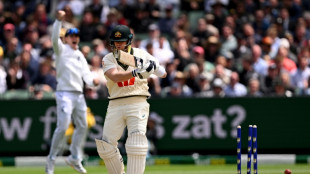 Australia reeling on 72-4 at lunch as England strike in 4th Ashes Test
Australia reeling on 72-4 at lunch as England strike in 4th Ashes Test
-
Too hot to handle? Searing heat looming over 2026 World Cup

-
 Packers clinch NFL playoff spot as Lions lose to Vikings
Packers clinch NFL playoff spot as Lions lose to Vikings
-
Guinea's presidential candidates hold final rallies before Sunday's vote

-
 Eon Prime Intelligent Alliance Office Unveils New Brand Identity and Completes Website Upgrade
Eon Prime Intelligent Alliance Office Unveils New Brand Identity and Completes Website Upgrade
-
Villa face Chelsea test as Premier League title race heats up

-
 Spurs extend domination of NBA-best Thunder
Spurs extend domination of NBA-best Thunder
-
Malaysia's Najib to face verdict in mega 1MDB graft trial
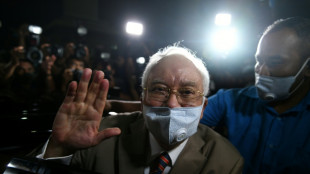
-
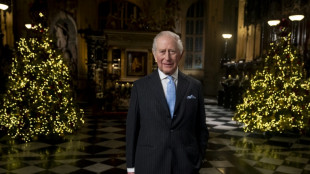 King Charles calls for 'reconciliation' in Christmas speech
King Charles calls for 'reconciliation' in Christmas speech
-
Brazil's jailed ex-president Bolsonaro undergoes 'successful' surgery

-
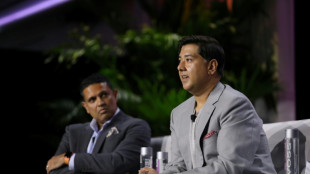 UK tech campaigner sues Trump administration over US sanctions
UK tech campaigner sues Trump administration over US sanctions
-
New Anglican leader says immigration debate dividing UK

-
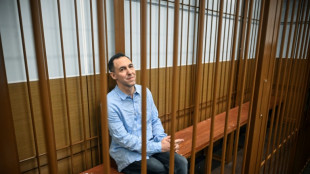 Russia says made 'proposal' to France over jailed researcher
Russia says made 'proposal' to France over jailed researcher
-
Bangladesh PM hopeful Rahman returns from exile ahead of polls

-
 Police suspect suicide bomber behind Nigeria's deadly mosque blast
Police suspect suicide bomber behind Nigeria's deadly mosque blast
-
AFCON organisers allowing fans in for free to fill empty stands: source

-
 Mali coach Saintfiet hits out at European clubs, FIFA over AFCON changes
Mali coach Saintfiet hits out at European clubs, FIFA over AFCON changes
-
Last Christians gather in ruins of Turkey's quake-hit Antakya

-
 Pope Leo condemns 'open wounds' of war in first Christmas homily
Pope Leo condemns 'open wounds' of war in first Christmas homily
-
Mogadishu votes in first local elections in decades under tight security
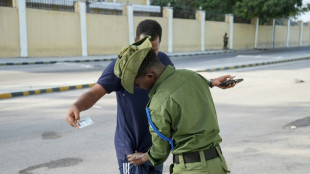
-
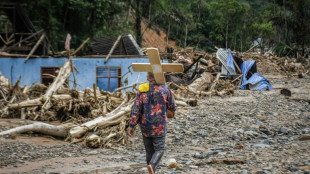 'Starting anew': Indonesians in disaster-struck Sumatra hold Christmas mass
'Starting anew': Indonesians in disaster-struck Sumatra hold Christmas mass
-
Cambodian PM's wife attends funerals of soldiers killed in Thai border clashes

-
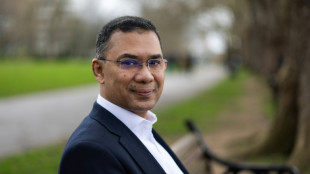 Prime minister hopeful Tarique Rahman arrives in Bangladesh: party
Prime minister hopeful Tarique Rahman arrives in Bangladesh: party
-
Pacific archipelago Palau agrees to take migrants from US
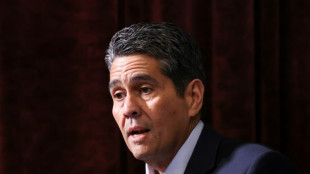
-
 Pope Leo expected to call for peace during first Christmas blessing
Pope Leo expected to call for peace during first Christmas blessing
-
Australia opts for all-pace attack in fourth Ashes Test
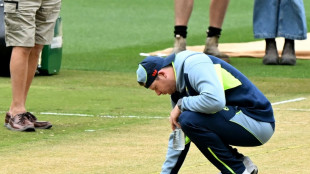
-
 'We hold onto one another and keep fighting,' says wife of jailed Istanbul mayor
'We hold onto one another and keep fighting,' says wife of jailed Istanbul mayor
-
North Korea's Kim visits nuclear subs as Putin hails 'invincible' bond

-
 Trump takes Christmas Eve shot at 'radical left scum'
Trump takes Christmas Eve shot at 'radical left scum'
-
3 Factors That Affect the Cost of Dentures in San Antonio, TX

-
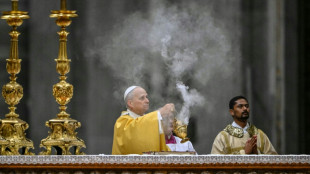 Leo XIV celebrates first Christmas as pope
Leo XIV celebrates first Christmas as pope
-
Diallo and Mahrez strike at AFCON as Ivory Coast, Algeria win

-
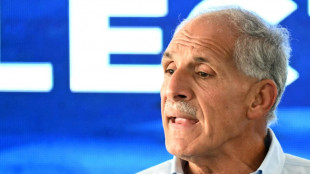 'At your service!' Nasry Asfura becomes Honduran president-elect
'At your service!' Nasry Asfura becomes Honduran president-elect
-
Trump-backed Nasry Asfura declared winner of Honduras presidency

-
 Diallo strikes to give AFCON holders Ivory Coast winning start
Diallo strikes to give AFCON holders Ivory Coast winning start
-
Spurs captain Romero facing increased ban after Liverpool red card

-
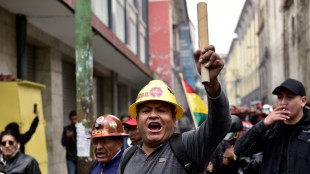 Bolivian miners protest elimination of fuel subsidies
Bolivian miners protest elimination of fuel subsidies
-
A lack of respect? African football bows to pressure with AFCON change

-
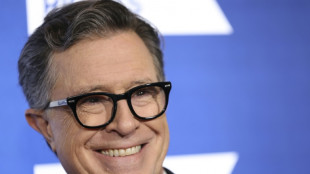 Trump says comedian Colbert should be 'put to sleep'
Trump says comedian Colbert should be 'put to sleep'
-
Mahrez leads Algeria to AFCON cruise against Sudan


US breast cancer rate rising sharply even as deaths fall: study
Breast cancer rates are rising sharply in the United States, driven by increases among younger women and Asian Americans, a study said Tuesday.
The biennial report by the American Cancer Society found the number of cases grew by one percent each year from 2012 to 2021, even as the overall death rate continued its historic trend of decline, falling 44 percent from 1989 to 2022.
Breast cancer is the second most common cancer diagnosed among US women, and the second leading cause of death from cancer, after lung cancer.
Approximately one-in-eight women in the US will be diagnosed with invasive breast cancer in their lifetime and one-in-43, or two percent, will die from the disease.
Over the past decade, the report said, breast cancer rates grew faster for women under the age of 50 than those older -- 1.4 percent annually versus 0.7 percent annually -- for reasons that aren't immediately clear.
By race, Asian American women had the most rapid increase in incidence followed by Hispanic, which the paper said "may be related in part to the influx of new immigrants, who have elevated breast cancer risk."
Overall, the breast cancer mortality rate fell 44 percent from 33 deaths per 100,000 women in 1989 to 19 deaths per 100,000 in 2022, resulting in around 517,900 averted deaths.
But despite decades of medical advancements in treatment and earlier detection, the benefits have been felt unevenly.
Mortality has remained unchanged since 1990 among Native Americans, while Black women experience 38 percent more deaths than white women despite five percent lower cases.
The paper said these findings highlighted "disadvantages in social determinants of health" and "longstanding systemic racism and has translated to less access to quality care across the cancer continuum."
For example, although Black women report getting mammograms more than White women, "they are more likely to have screening at lower resourced facilities and/or those that are not accredited by the American College of Radiology," the study said.
The authors recommended increasing racial diversity in clinical trials as well as community partnerships that boost access to high-quality screening among underserved women.
In April, an influential US medical body recommended women should get screened for breast cancer every other year starting from the age of 40.
The US Preventive Services Task Force (USPSTF) had previously said that women in their 40s should make an individual decision about when to start mammograms based on their health history and reserved its mandatory recommendation for people turning 50.
P.Costa--AMWN


